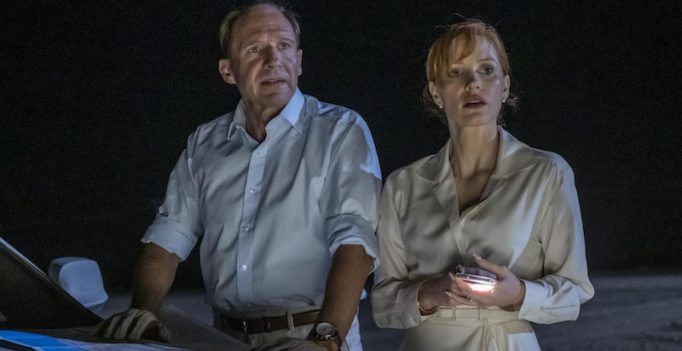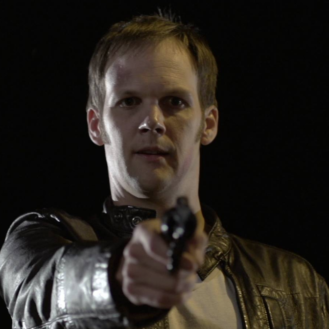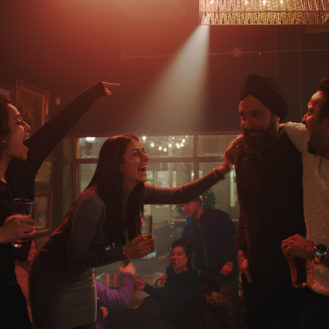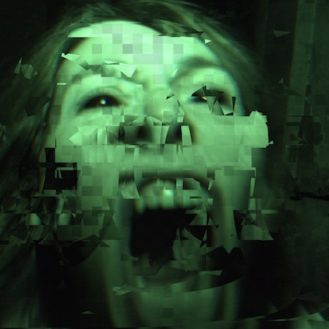By: Jolie Featherstone
John Michael McDonagh’s grim social drama, The Forgiven, explores the intersections of class, race, and culture. Based on the 2012 novel of the same name by author Lawrence Osborne, the film constructs a world beyond time. Indeed, the story feels as if it could be set today or many decades ago and it would still be just as relevant.
Married couple David and Jo, an older, English man (Ralph Fiennes) and a younger, American woman (Jessica Chastain) respectively, are making their way to a weekend-long party hosted by long-time friends (a couple played by Matt Smith and Nitram’s Caleb Landry Jones) at a sprawling, lavish villa in Morocco. The couple is awash in seething contempt and disappointment with one another. David, dependent on the drink to get through the day, makes racist comments which results in admonishment from Jo. As they drive through the desert to the villa, David is bleary-eyed at the wheel causing Jo to become increasingly concerned.
Meanwhile, two young local boys who sell fossils to tourists hatch a plot. One boy devises a scheme and coerces his friend (the seemingly more cautious of the two) to join him. The latter boy, Driss, walks out into the road to get David and Jo’s attention. David fatally hits him. Jo, shocked, and David, almost annoyed at the inconvenience, make it to the villa and the hosts and revelers barely bat an eyelash at the tragedy. Indeed, they continue to drink and make merry while the young boy’s lifeless body lies in a darkened room on the premises.
As word travels through the local communities, Driss’ father, Abdellah Taheri (Ismael Kanater) comes to the villa to bring his son’s body home. He has one condition: David must accompany him and attend his son’s burial. Initially reluctant, David is convinced in to going with Abdellah and his friends.
While David embarks on a spiritual sojourn, Jo begins a journey of her own. Released from the tangled web of co-dependent misery, Jo starts wading into the hedonistic party and the flirtatious bids of a young business man (Christopher Abbott of Possessor Uncut) – all while the local staff looks on. As she seeks to numb the pain of her marital woes and the shock of the accident, she begins to feel more self-assured.
Fiennes is excellent as always. As one of the best working actors of his generation, he brings a layered authenticity to David. Chastain handles Jo’s significant character progression with grace and depth.
Some of the dialogue between David, Jo, and their social crowd feels rather scripted – almost as if suited for a stage-play. Some of the best moments of writing and dialogue take place during David’s tense journey with Driss’ father.
The most intriguing characters are the party hosts’ head of staff Hamid (Mourad Zaoui) and Abdellah’s friend Anouar (Saïd Taghmaoui) who acts as both language and cultural interpreter for David during their burial procession. Both Zaoui and Taghmaoui deliver incredibly emotionally-intelligent performances. Their characters, Hamid and Anouar demonstrate, in different ways, how people of marginalized communities often have to adapt to appease colonizers and people of privilege. Both Hamid and Anouar have to put on different personas and take on heightened mental and emotional labour to tend to people of privilege – for gainful employment, survival, or simply due to their humanity and values. The local staff, led by Hamid, witness the partiers’ nauseating nonchalance around the slaying of a young boy. They are subject to both casual and overt racism. They witness excess and waste – while outside the villa gates young local boys dig and shill fossils in the heat to make money.
The film’s pacing can be uneven at times. In some parts it lags, and other scenes feel hurried. Overall, The Forgiven is an unsettling film that burrows into your consciousness. The more you think about the film, the more it expands; the more loudly the grief and injustice ring out. A young boy is accidentally killed and his body lies, hidden away, out of the sight of hordes of tourists who care for naught but their own pleasures. It’s a picture of soullessness. Yet we still wait to see these people redeem themselves. But consumption has no sense of morality. It is consumption for consumption’s sake, and a body lies in its wake.
The film has a similar earthiness as in Matteo Garrone’s Gomorra (2008) though it is not as hopeless as that film leaves you. It also calls to mind the juxtaposition of race, culture, and class as explored in Alejandro G. Iñárritu’s Babel though on a much more acute scale. The scenes of the bourgeoisie crowd feels similar to Hitchcock’s Rope, with perhaps a dash of Fellini satire.
With The Forgiven, McDonagh (who previously wrote and directed The Guard, Calvary, and War on Everyone) constructs a spiritual critique of the morally bankrupt ways of neocolonialism.
**********
Do You Tweet? Follow These Tweeple:
Jolie Featherstone: @TOFilmFiles





Be the first to comment